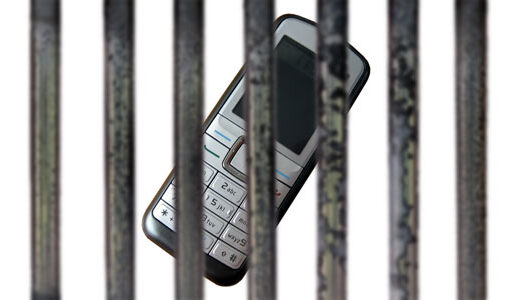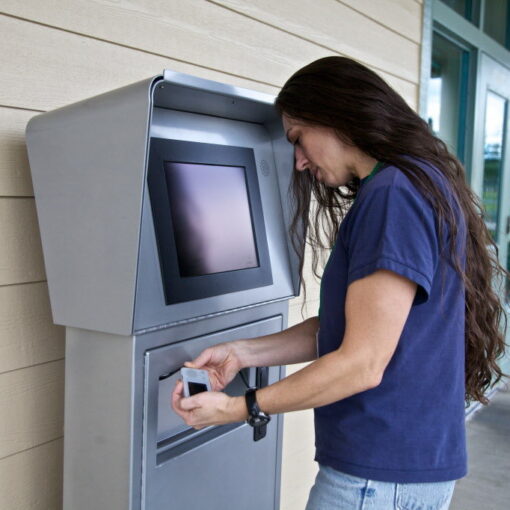 This article describes how Federal prison inmates can now use email. It’s a cumbersome process, but it demonstrates how modern communications technology and tools are slowly being adapted for the unique requirements of the corrections marketplace. Eventually, the meshDETECT secure cell phone service will offer secure, controlled email along with phone calls.
This article describes how Federal prison inmates can now use email. It’s a cumbersome process, but it demonstrates how modern communications technology and tools are slowly being adapted for the unique requirements of the corrections marketplace. Eventually, the meshDETECT secure cell phone service will offer secure, controlled email along with phone calls.
The Facebook page reads: “We are inmates in the federal system who are looking for someone to talk to. We have e-mail capability so we may chat.”
A few caveats: “You must be educated and (non-ghetto) please.” Oh, and only women need reply.
Welcome to 21st century prison life, a world where those on the inside can communicate with those on the outside via cyberspace.
As of this month, all 116 federal prisons in the U.S. provide email access to qualifying inmates who pay 5 cents per minute to use the computer.
The Federal Bureau of Prisons reads all the emails, and recipients have to agree to be contacted.
Internet access, though, remains off-limits.
Some states are following suit. Michigan uses a program called JPay, which lets outsiders email inmates. But prisoners cannot reply electronically.
“We still have to ensure facility security,” said John Cordell, a Michigan Department of Corrections spokesman, pointing out that full-scale email “is not viable for us.”
Maybe in the future, he said. But for now, snail mail, pay phones and personal visits will have to do.
Prisoners have been trying to find ways to communicate with the outside world for years, even secreting smartphones into footballs tossed over security fences.
But now, federal prisons have another high-tech – and sanctioned – option to stay in touch.
This spring, the Federal Bureau of Prisons officially made email available in all 116 of its prisons, with nearly 122,300 inmates – more than half the federal prison population – already qualifying for the program. The idea is to help inmates keep ties with the community and family members by letting them talk online.
Of course, inmates trying to communicate with the outside world isn’t new. Cellphones and smartphones are getting smuggled inside by the thousands.
But prison officials say e-mail offers a link that can be easily monitored. The messages going in and out are screened. The recipients are pre-approved, and only those who agree to be emailed can get messages.
“The Bureau of Prisons has taken a lot of pains to make sure that any security concerns are taken care of. If the public is scared that some inmate is going to be stalking in cyberspace, that is not going to happen,” said Elizabeth Kelley, co-chairwoman of the Corrections Committee for the National Association of Criminal Defense Lawyers.
Based on recent Internet activity, inmates are doing plenty of cybertalking.
Strict policy
In state and federal prisons nationwide, cellphones and smartphones are regularly smuggled in – in some cases getting tossed over fences – leaving the corrections community scrambling to stay on top of the problem.
Inmates are texting, tweeting and posting on Facebook, thumbing their noses at rules banning Internet use.
MDOC spokesman John Cordell said Michigan hasn’t yet decided to jump on the prison email bandwagon. In addition to the federal prison system, a handful of states are allowing inmates to e-mail family, friends and their lawyers.
“Michigan has a pretty strict Internet-based policy. There are no network connections inside the prison setting that a prisoner could utilize,” said Cordell, noting any kind of Internet use could jeopardize inmate and public security, even tightly monitored email.
Several benefits
Instead, Michigan inmates communicate using the pay phone, written letters or actual visits at the prison, he said.
There’s also JPay, a system that allows outsiders to send an email to the prison; a printed copy is delivered to the inmate. But the prisoner can’t respond via email.
“It’s one of the things that ultimately we may consider,” Cordell said of full-scale e-mail. “But right now, it’s not something that’s viable for us.”
That’s too bad, say prisoner advocates and criminal defense lawyers.
They say prison email has several benefits: it’s easier to monitor and read than regular mail, it’s cheaper than pay phones for inmates, and it helps prepare inmates for re-entry by keeping them in touch with the outside world.
“That’s a lot more reasonable than them using the phones,” said criminal defense attorney Anthony Chambers, who has several clients in federal prison and views prison e-mail as “extremely helpful.”
- Multi-Blockchain System for Inmate Forensics - April 2, 2024
- Blockchain to Secure Attorney-Inmate Privacy for Prison Calls - June 28, 2023
- meshDETECT® Announces Grant of Ninth Patent For Blockchain Wireless Services - August 26, 2022




